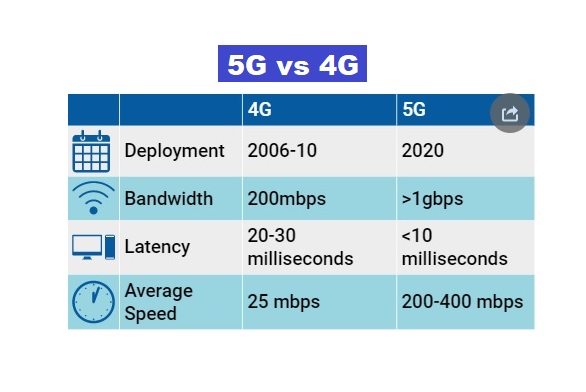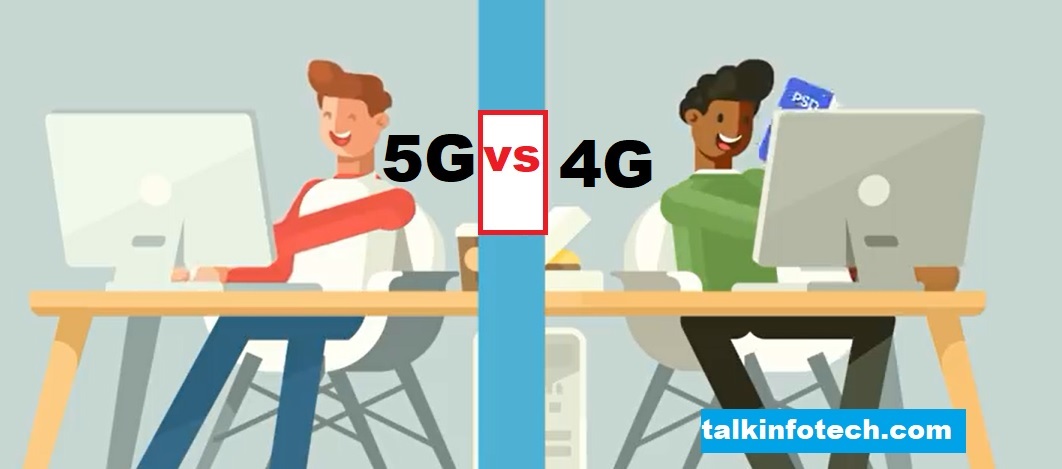One of the most discussed and perhaps anticipated technology topic today is 5G technology.
But many seem to forget easily that 5G is just an upgrade of 4G network capacity.
To be able to understand 5G, you must understand the various characteristics between 5G vs 4G networks.
To start, it is important we run brief historical analyses of how the G technology came to be.
First what is that G all about?
G represents the various Generations of wireless technologies. All generations from 1G to 5G are all based on wireless technology with various capacities and speeds.
The Generations ‘G’ :
1G
It is the first generation of wireless telecommunication technology.
This generation run based on the following:
NMT- Nordic Mobile Telephony
TACS- Total Access Communication System
ETACS- European Total Access Communication System
This generation was the starting point of wireless technology.
The first generation wireless technology was based on analogue system and analogue signal pattern.
On this grounds, the disadvantage of this generation has being that it is not capable of converting analogue signals to digital signals making the signals to be very slow and to travel only in a short distance.
In view of that, efforts were made to find a way round this which landed the technology world on the next generation referred to as 2G which is second generation.
2G
The second generation wireless technology is based on digital technology which is capable of converting analogue signals to digital signals and vice versa.
Keep in mind that digital signals could travel at a faster speed and can cover more distance than analogue signal system.
Under the 2G technology is the GSM initially discovered by Groupe Special Module
After that it became globally accepted as Global System for Mobile Communication (GSM) hence this became a global standard.
At this level of the wireless technology, there was now capacity for voice communication.
And after 2G there was need to transfer data across the network which 2G could not handle, this brought about 2.5G.
We are laying this basic foundation of explanation to help understand better by the time we get to 5g vs 4g differences
2.5G
This runs based on GPRS technology.
GPRS stands for General Packets Radio Service.
This technology was able to communicate data from one point to the other without wire communication which means wirelessly.
But the amount of data transferred in 2.5G was a bit small as it transferred only 56kbps hence the need for 2.75G
2.75G
2.75G worked based on EDGE which stands for Enhanced Data rates for GSM Evolution.
So in EDGE technology, the data rate had increased.
Lest I forget also, among 2G there is CDMA- Code Division Multiple Access.
Therefore from 2G to 2.75G, they are all combined to refer to as the 2G technology
Then the data from 2.75G though had improved in size and quality yet was not top notch as it transferred only 170kbps hence the need for something higher and that is 3G.
3G
3G in based on UMTS that is Universal Mobile Telecommunication System
This technology is capable of 384kbps of data communication.
Because of a higher data capacity transmitted by the 3G network technology, it supports features like video calling.
Also have WCDMA which stands for Wide Code band division Multiplex
After 3G the technology was upgraded to 3.5G
3.5G
This operates based on HSDPA which stands for High Speed Downlink Packet Access.
Also we have HSUPA – High Speed Uplink Packet Access.
3.5G gives us 2mbps.
Then we moved to 3.75G which HSPA + meaning High Speed Packet Access with potential increase which is symbolized by the plus sign.
After the 3.75G and upgrade to 3.9G took place.
3.9G
This wireless generation level is known as LTE which is Long Term Evolution
This is meant to be able to achieve 4G which can be seen as 4GLTE
4G
The capacity for 4G is 1gpbs( gigabits per second) for stationary users and 100mbps for high mobility users.
And from 4G we are now in 5G
After analyzing 5G technology, we will now bring detailed analysis of 5G vs 4G
5G
Much has actually been said about 5G technology.in how we transform the way we use computers and other devices.
Note only will it increase speed and make ordinary consumers happy, but also that it will help to usher in new technologies that can change the world we live in
There is also the fact that a lot of people are saying it could be dangerous. But we have covered that topic in another articles.
However, in this article we are mostly concerned about comparing 5G vs 4G technologies.
So now let’s compare 5G vs 4G
Speed:
While 4G maximum speed is about 150mbps, the minimum 5G speed is about 1gbps and can go as high as 20gbps which makes it awesome in terms of speed.
That suggests that if you want to download a high definition movie it will only take you just a few seconds with just that 5gbps. Great!
Latency
Latency for 4G is around 20-30 milliseconds, but for 5G it will reach well below 10 milliseconds, and in best cases around 1 millisecond delays, according to Mats Norin, program manager at 5G For Industries, Ericsson Research.
Kindly see more details comparison between 5G vs 4G in the table below.

Generally, the availability of 5G has the potential to bring about several technological driven innovations in almost all fields of human endeavor be it information technology like robots, artificial intelligence, Internet of Things(IoT), agriculture, medicine, defense, manufacturing, name them.
Indeed 5G is a technology evolution that will change a lot of things and introduce more other things and concepts into our human existence.
Do leave us a comment on what your thoughts are whether or not you agree with the positions of this article regarding the topic.
Or better still if you think there is anything we left out of this content that may also be useful as far as this 5G vs 4G comparison is concerned.
You can as well reach out to us via our official email with any comment or input at feedback@talkinfotech.com

